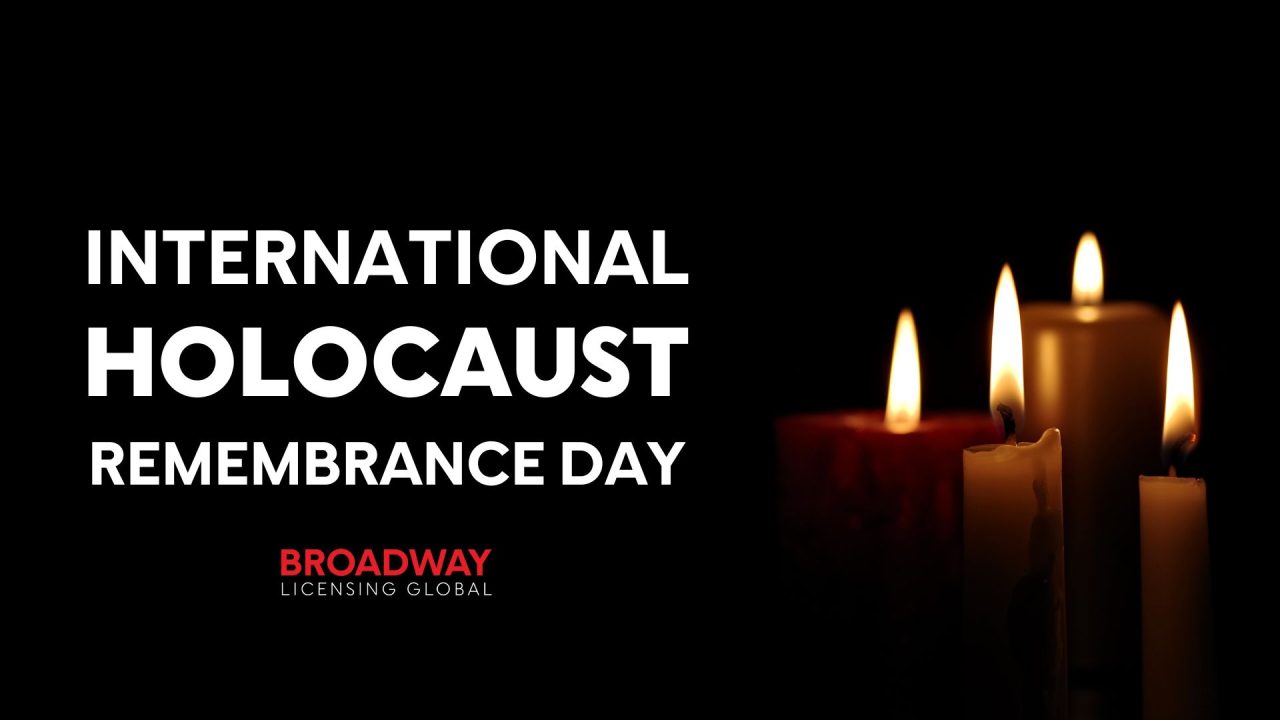Dramatists Play Service
Leopoldstadt by
Winner of the 2023 Tony Award® for Best Play
Spanning fifty years and multiple generations, Leopoldstadt follows a family’s reckoning with a past it cannot escape and a future it cannot control. A passionate drama of love and endurance beginning in the last days of 1899 through the heart of the twentieth century, Stoppard’s customary wit and beauty shines through the enduring spirit of a family tested to its most extreme limits.
Winner of the 2023 New York Drama Critics’ Circle Award for Best Foreign Play, Drama Desk Award for Outstanding Play, Drama League Award for Outstanding Production of a Play, Outer Critics Circle Award for Outstanding New Broadway Play.
“A heart-rending epic.” —The New York Times
“Ranks among Mr. Stoppard’s greatest works…an inexpressibly moving, majestic play.” —Wall Street Journal
The Diary of Anne Frank by Frances Goodrich and Albert Hackett
Based up on the book Anne Frank: The Diary of a Young Girl
Recipient of the 1956 Tony Award® for Best Play and Winner of the Pulitzer Prize for Drama, and winner of virtually every other coveted prize of the theatre. Very few plays have moved the Broadway critics to write such glowing notices, receiving the unanimous acclaim of all the top New York reviewers.
“A lovely tender drama…Strange how the shining spirit of a young girl now dead can filter down through the years and inspire a group of theatrical professionals in a foreign land.” —The New York Times
“The precise quality of The Diary of Anne Frank is the quality of glowing, ineradicable life—life in its warmth, its wonder, its spasms of anguish and its wild and flaring humor…Frances Goodrich and Albert Hackett have fashioned a wonderfully sensitive and theatrically craftsmanlike narrative out of the real-life legacy left us by a spirited and straightforward Jewish girl…as bright and shining as a banner.” —New York Herald-Tribune
The Diary of Anne Frank by Frances Goodrich and Albert Hackett, newly adapted by Wendy Kesselman
In this transcendently powerful new adaptation by Wendy Kesselman, Anne Frank emerges from history a living, lyrical, intensely gifted young girl, who confronts her rapidly changing life and the increasing horror of her time with astonishing honesty, wit, and determination. An impassioned drama about the lives of eight people hiding from the Nazis in a concealed storage attic, The Diary of Anne Frank captures the claustrophobic realities of their daily existence—their fear, their hope, their laughter, their grief. Each day of these two dark years, Anne’s voice shines through: “When I write I shake off all my cares. But I want to achieve more than that. I want to be useful and bring enjoyment to all people, even those I’ve never met. I want to go on living even after my death!” This is a new adaptation for a new generation.
“Undeniably moving. It shatters the heart. The evening never lets us forget the inhuman darkness waiting to claim its incandescently human heroine.” —The New York Times
“An extraordinary theatrical adventure! Go and remember.” —New York Post
Indecent by
Indecent, by Pulitzer Prize-winning playwright Paula Vogel, is a deeply moving play inspired by the true events surrounding the controversial 1923 Broadway debut of Sholem Asch’s God of Vengeance—a play seen by some as a seminal work of Jewish culture, and by others as an act of traitorous libel. Indecent charts the history of an incendiary drama and the path of the artists who risked their careers and lives to perform it.
“This powerful drama by Paula Vogel sheds light on a time when history, Jewish culture and the depiction of lesbian love explosively intersected.” —The New York Times
“…[a] riveting backstage drama…” —The New Yorker
If I Forget by
In the final months before 9/11, liberal Jewish studies professor Michael Fischer has reunited with his two sisters to celebrate their father’s seventy-fifth birthday. Each deeply invested in their own version of family history, the siblings clash over everything from Michael’s controversial scholarly work to the mounting pressures of caring for an ailing parent. As destructive secrets and long-held resentments bubble to the surface, the three negotiate—with biting humor and razor-sharp insight—how much of the past they’re willing to sacrifice for a chance at a new beginning. If I Forget tells a powerful tale of a family and a culture at odds with itself.
“…passionate and provoking…Irritable and animated, the Fischers come vibrantly alive in [Levenson’s] funny, bruising, searching voice…IF I FORGET speaks to both the head and the heart.” —The New York Times
“…a trenchant depiction of American Jewish identity at a crossroads…IF I FORGET is ambitious and often very funny. It has the sparky intracultural conflict of Joshua Harmon’s Bad Jews, the propertied-socialist guilt of Tony Kushner’s iHo, the looming family dread…of Stephen Karam’s The Humans and Tracy Letts’s August: Osage County. …[Levenson] gives us a lot to talk about, and a play to remember.” —Time Out New York
Letters to Sala by
Adapted from the book Sala’s Gift by Ann Kirschner and based on a true account, Letters to Sala is a remarkable story of a young girl’s survival during wartime Germany. Five years. Seven Nazi labor camps. Over 350 hidden letters. Sala Garncarz Kirschner kept her secret for over fifty years, concealing her incredibly painful history in a Spill and Spell box. Everything changes when Sala reveals the cache to her grown daughter, Ann. Letters to Sala draws from the emotional journeys that begin for both Ann and Sala when the letters resurface. Through scholarly research, Ann discovers that her mother has made a historically significant impact on Holocaust documentation. As Ann processes her own reaction to her mother’s story, her daughters, Caroline and Elisabeth, also realize for the first time the weight of their Jewish heritage. Simultaneously, Ann’s study of the letters throws Sala into the past again. She relives her youth, recalling her naïve desire for adventure, the disillusionment of her life in the work camps, and her loss of communication with the outside world as the war progressed around her. Playwright Arlene Hutton drives the two stories to a single question: What is to be done with these letters? If Sala risked her life to hold onto them as a young woman imprisoned in a work camp, are they merely the emotionally rich relics of her past life? Or are they worthy and important historical documents that demand to be shared with the public? Three generations of Kirschner women must work together to sift through the past and come to terms with the true gravity of Sala’s letters. Letters to Sala has a flexible cast size and flexible staging. Images of the actual letters and photos of the real people are available online for projections, programs and displays. Sala’s letters, which were displayed in a special exhibition at the New York Public Library in 2006, are an important addition to Holocaust research, called, as one journalist noted, “the greatest find since Anne Frank’s diary.”
The Chosen adapted by Aaron Posner and Chaim Potok from the novel by Chaim Potok
A standing-room-only hit wherever it has played, this award-winning adaptation from the award-winning novel is the story of two boys, two fathers and two very different Jewish communities— “five blocks and a world apart” —in Williamsburgh, Brooklyn, in the 1940s. Set against the backdrop of WW II, the revelation of the Holocaust, and the desperate struggle of Zionism, THE CHOSEN remains not essentially political or religious but deeply human. Reuven Malter and Danny Saunders are both passionate and intelligent young men. When Reuven is injured by Danny during a heated baseball game between their rival yeshivas, a unique friendship is born. As the boys grow to manhood, they are forced to learn important lessons about each other, their fathers and themselves. This is a story of friendship, family and difficult choices that we must all make on the path to understanding, respect and reconciliation.
“…moving…examines the freedom that comes with the passage from childhood to adulthood—intellectual freedom, religious freedom, America’s promise of freedom.” —Philadelphia Weekly
Address Unknown by Kathrine Kressmann Taylor, edited by Frank Dunlop
In an era of austerity, recession, and rising nationalism, two friends are torn apart when the Nazi regime infiltrates their friendship and families to devastating effect. Based on the bestselling book, which was written as an anti-fascist call to arms and banned in 1930s Germany for dramatically exposing the threat of Nazism, ADDRESS UNKNOWN is a timely warning of how humanity can fail in the face of extreme ideology.
“[Dunlop] has…harnessed the tragic deterioration of a once binding friendship and the cold, hard inevitability and ugly disruptive consequences of war.” —Variety
Incident at Vichy by
1942. The detention room of a police station in the occupied Vichy Zone. Eight men have been picked up for questioning, for the reason everyone knows but can’t begin to consider. As details of the consequences of the occupation, and of the Nazis’ Racial Program, begin to emerge, each man must consider for himself how he responds. In one of the clearest and most urgently moral plays by the greatest American moral dramatist, Incident at Vichy is a tense, incisive examination of the choices each of us can make—and how we assuage our consciences—when our own society asserts domination over those considered “other.”
“Arthur Miller has written a moving play, a searching play, one of the most important plays of our time…INCIDENT AT VICHY returns the theater to greatness.” —The New York Times
I Am My Own Wife by
Winner of the 2004 Tony Award® for Best Play and the 2004 Pulitzer Prize for Drama
Based on a true story, and inspired by interviews conducted by the playwright over several years, I AM MY OWN WIFE tells the fascinating tale of Charlotte von Mahlsdorf, a real-life German transvestite who managed to survive both the Nazi onslaught and the repressive East German Communist regime.
Also winner of the 2004 Lortel Award for Outstanding Solo Show and 2004 Drama Desk Award for Outstanding Play.
“I Am My Own Wife is the most stirring new work to appear on Broadway this fall…both moving and intellectually absorbing.” —The New York Times
“I Am My Own Wife revels in a particular time and place, but it is more than a historical document. The play is a vivid portrait of a unique person whose ability to endure has been turned into a highly theatrical journey.” —Associated Press
A Shayna Maidel by
The setting of the play is the stylish Manhattan apartment of Rose Weiss, the time 1946. Although born in Poland, Rose, now in her 20s, came to the United States with her father, Mordechai, at the age of four and is now completely “Americanized.” The plan had been for Rose’s mother and sister to join the others, but the sister fell ill with scarlet fever, the mother stayed on to care for her, and soon the rise of the Nazis cut off their escape. Their ordeal in the concentration camps, which only the sister survived, has brought a burden of guilt to the aging Mordechai and deeply mixed feelings as he awaits the arrival of his elder daughter, Lusia, who has, at last, found her way to America. With her halting English and old world ways Luisa is a striking contrast to Rose, who is somewhat embarrassed by her rediscovered sister’s presence, and fearful that it will threaten her own hard-won independence. Distraught, and concerned that she may never be reunited with her young husband, Lusia embraces a series of memories and fantasies which make real the joys and horrors of her life before the war, from which her father and sister were spared. But when Mordechai gives Rose a letter from her mother—a letter left many years earlier with a non-Jewish Polish friend—a “proof” of family is somehow restored, and old barriers and griefs give way to a renewed sense of hope and mutual dependence—and the conviction that a better future may yet arise from the bitter ashes of the troubled past.
“…a tribute to the sustaining power of family and to man’s indomitability.” —The New York Times
The White Rose by
In 1942 a group of students of the University of Munich chose to actively protest the atrocities of the Nazi regime and to advocate that Germany lose the war as the only way to overthrow Hitler’s regime. Asking for resistance and sabotage of the war effort, among other things, they published their thoughts in five separate anonymous leaflets, which they titled “The White Rose” and which were distributed throughout Germany and Austria during the summer of 1942 and the winter of 1943. When captured, the police inspector of the town, Robert Mohr, is intrigued by Sophie, the youngest of the conspirators and the only girl among them. Mohr, who doesn’t really take the crime of passing leaflets so seriously, knows that the Third Reich does and is pressured by a superior, Mahler, to obtain a conviction. Mohr wants to save Sophie from certain execution and tries to get her to sign a confession saying that she didn’t know what she was doing and that she was misled by the others. But Sophie counters with why she is fighting for what is right, the meaning of pride and when it counts and the loyalty she feels to the others, especially her brother who is a leader in the group. The conversations between Sophie and Mohr and the interrogation scenes of the other conspirators reveal a complex group of people, all clinging to beliefs that ultimately can not be fulfilled at this point in time. In the end, all in The White Rose group are executed, and the Nazi regime continues its devastation until the end of World War II.
“Out of this true story, Lillian Groag…has fashioned…a play that speculates on their case earnestly, intelligently, intellectually…” —Newsday (NY)
Becoming Dr. Ruth by
Everyone knows Dr. Ruth Westheimer from her career as a pioneering radio and television sex therapist. Few, however, know the incredible journey that preceded it. From fleeing the Nazis in the Kindertransport and joining the Haganah in Jerusalem as a sniper, to her struggle to succeed as a single mother newly-arrived in America, Mark St. Germain deftly illuminates this remarkable woman’s untold story. Becoming Dr. Ruth is filled with the humor, honesty, and life-affirming spirit of Karola Ruth Siegel, the girl who became “Dr. Ruth,” America’s most famous sex therapist.
“Dr. Ruth’s story is certainly a stirring one…and this is an illuminating portrait.” —The New York Times
“It’s a simple premise…but it works for Westheimer’s story, which is fascinating (and heartbreaking) all on its own. St. Germain convincingly and humorously conveys Westheimer’s surprising dignity, courage, and resilience.” —The New Yorker
The Model Apartment by
Winner of the Obie Award
A brilliant and bizarre black comedy about a pair of elderly Holocaust survivors and their outlandish, deranged daughter, which, in a series of sometimes hilarious, sometimes moving scenes, traces the pervasive, baleful effect of their earlier trauma on the “better life” they have tried to build. Having retired to Florida, Max and Lola are dismayed to find that their new condo is not yet ready for occupancy and that they are obliged to stay temporarily in a “model apartment” —a tacky, gaudily decorated horror with a fake television set and refrigerator where even the ashtrays are cemented in place. Max and Lola had hoped to escape not only the nagging memories of their earlier lives, and the terrors of present-day Brooklyn, but also their fat, schizophrenic daughter, Debby, whom they had tried to “pay off” with generous amounts of cash before their hasty departure. But Debby, who seems to symbolize for them the awfulness of their past and their failures in the present, soon appears, followed in short order by her boyfriend, Neil, a slightly retarded black teenager whose limited sensibilities have been further numbed by the grinding horrors of the urban ghetto. Sometimes moving (as when Max, dreaming, imagines Debby as the lovely, innocent daughter he lost to the Nazis) or darkly comic (as when Max and Lola gingerly query Neil about how he and their daughter first met), the many short scenes coalesce into an affecting, ultimately disquieting whole, which makes it chillingly evident that those who are unable to confront and overcome the demons of their past are doomed to be forever haunted by them.
“…diabolical ingenuity and rueful tenderness…lovely and devastating…a glowing reminder of the particular pungency and intelligence of this playwright’s vision.” —The New York Times
“Playwright Donald Margulies presents a modern family drama with an unusual, but fitting combination of themes: schizophrenia, parent-child separation, and the transmittal of Holocaust trauma across generations.” —Los Angeles Reader
Two Jews Walk Into A War… by
Ishaq and Zeblyan are the last remaining Jews in Afghanistan. They share the only remaining synagogue that has not been destroyed by the Taliban. They share a mission to repopulate the Jewish community in Kabul. But they also hate each other. Can this Middle Eastern odd couple commit to one incredible act of faith to keep the diaspora alive without killing one other? A modern vaudeville full of schtick, sorrow, and survival.
“…amusing, sweet-natured, and irreverent.” —The New York Times
“Both timely and timeless, Two Jews Walk into a War… should hook its audience with guffaws, then give them something to think about while they are laughing.” —Palm Beach Post
For This Moment Alone by
Set in Toronto in 1948, a Jewish family, struggling to recover from the horrors of the war in Europe, finally has cause to rejoice. Ruth is about to be reunited with the only surviving member of her immediate family—her brother Freddie. But when she goes to Union Station to meet him she is faced with the most devastating shock of her young life—the brother she was expecting turns out to be a stranger, an imposter holding her brother’s papers. Suddenly she and the family with whom she lives are forced into a situation that is almost impossible to resolve. If they abandon this displaced person they condemn him to more pain, more suffering and risk the possibility of his being deported. For Joe, the patriarch of the family, there is no choice: to save one live is to save the world. He takes this enigmatic “Freddie” into his home and calls upon himself and the other members of the household to embark on finding some way of living with their suspicions, their anger and their guilt. At what point do you stop helping your fellow man? Should there be a line between “blood” and “water”? Where does responsibility end? The play follows the paths of Ruthie, Joe and the rest of the family as they come to terms with what it means to accept, to forgive and to survive.
“A storyteller with a story to tell who won’t let you down…an evening of rich, traditional theatre.” —View Magazine
Playscripts
Dark Road
When Greta, a young girl living in Nazi Germany, reads that the nearby women’s concentration camp is hiring guards, she sees it as a chance to find her place in the world and provide for her sister Lise. But soon she learns the reality of her duties, and so too does she learn how to justify her crimes, heading further and further down the dark road laid by the Third Reich. Kind-hearted Lise is shocked at what her sister becomes, and though the two drift apart, their fates remain inextricably and dangerously linked. A powerful drama about the choices that allow evil to become ordinary.
King of the Jews
When a runaway boy seeks refuge in their cafe, ten unassuming Jews in Nazi-occupied Poland find themselves selected to form a Jewish ghetto council in charge of policing their own people. Led by the morally ambiguous Doctor Trumpelman, the council revels in their newfound power until they are faced with the impossible task of handing over the names of 100 of their fellow Jews. Unable to choose and unable to disobey, the council members grapple with the assignment of sentencing their own people to death.
Sending Down the Sparrows
As a reluctant member of the Hitler Youth, Viktor is surrounded by Nazi ideology, from the math problems he’s given in class to the conversations he has with his friends. But Viktor is different, because he has a secret: his developmentally disabled sister, Alina, who he visits in a state institution. As he learns just how far the Third Reich will go in the name of “genetic purity,” he must choose where he stands, no matter what it costs. An impactful drama and testament to the people with disabilities persecuted in the Holocaust.
Hiding in the Open
An adaptation of Sabina Zimering’s memoir, Hiding in the Open tells the true story of two Jewish sisters from Poland who assume false Catholic identities and work in a Nazi hotel during World War II. Living in constant fear of having their identities revealed, the sisters bravely face danger and the challenges of growing up while keeping their heritage a secret. Thrilling and heart-warming, this story of survival and teenage courage examines the bonds of family and human kindness in the face of great atrocities.
And a Child Shall Lead
This is the heroic and true story of children coming of age in Terezin, the “Jewish city” established by the Nazis near Prague as a way station before the death camps. In the face of unspeakable horror, these children use their determination and creativity to build lives filled with hope and beauty — playing, studying, making art, and writing an underground newspaper — all at the peril of being executed. Their actual poems and stories are woven into a fast-paced drama, evoking the universality of children caught in the insanity of war.
Face Forward: Growing up in Nazi Germany
Three young people growing up in Nazi Germany struggle to claim their identities and transition into adulthood in this collage play about ethics, family, and self-perception. Marian’s father wants to hide a Jewish family, but Marian just wants to fit in. Ernst joins the Hitler Youth but has trouble fully embracing the lifestyle. Rebecca endures discrimination from teachers and students for her Jewish heritage. No answers come easily as these three characters experience ordinary growing pains in the face of extraordinary historical tragedy.





